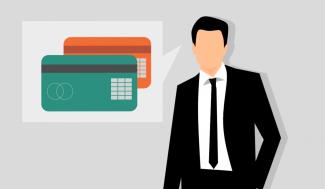
Should I Pay Off My Debt or Save for Emergencies First
Whether a formal budget is put together or not, everyone has a budget they live by in life. You can only spend as much money as you can access on an annual basis, whether that is directly through your paycheck or through loans and credit cards. Ideally, you are spending less than you make each year and not taking on too much debt. However, debt is inevitable and so is the need for a rainy-day fund, or emergency savings. One of the toughest financial decisions most people face is what to do with the money they have. Should you be paying down debts or saving for emergencies? Is one more important than the other, or should they be tackled at the same time? Below you will find a few helpful notes to guide you through this decision-making process.
What's the Interest Rate on Your Debt?
Depending upon the type and amount of debt you are carrying, it may be fiscally wise to focus on paying down your debts first. The Motley Fool points out that high-interest debts are particularly devastating to financial stability, with many credit cards or other lines of credit featuring interest rates that can skyrocket north of 20%. In fact, paying down your debts first will help you save money in the long run.
Paying off the debt on a credit card or line of credit with a 15% interest rate is the equivalent of getting a 15% guaranteed return on money in savings. The savings, in this case, comes in the form of less money wasted paying down the original amount owed plus the accumulated interest over time.
Do You have Enough Emergency Savings?
How much money do you have in your emergency savings at this moment in time? If you are like most Americans, you likely have little to no emergency savings set aside to cover unexpected expenses. The general rule of thumb, according to experts, is to keep three to six months of living expenses on hand to cover you in the event of job loss. However, the exact figure you keep is a very personal decision. After all, this typical advice focuses on job loss as the unexpected financial setback, when that is not necessarily the reality everyone with emergency spending needs faces.
Some folks find themselves short on cash in the face of major home repairs, such as a new roof, AC, or furnace. Others might suffer a severe injury or illness that results in high medical bills. While the three-to-six-months figure is a good goal to have in mind, you should determine how much you are comfortable having around before setting a specific goal tailored to your financial situation.
A Better Solution: Tackle Both
Business Insider spoke with a financial advisor who suggested that Americans consider blending their debt payments and emergency savings goals into an overarching financial scheme. By paying down your debt while also setting money aside for emergency savings, you are not left ignoring one while hoping the other does not balloon out of control.
For more help figuring out what financial steps are best to take in regard to your plan, call your advisor at Hughes Warren!

